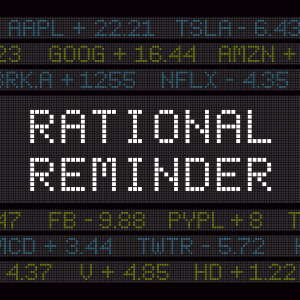
Good decision-making is a fundamental part of achieving our goals, so getting better at it would be in anybody’s best interest. Here to talk about making better decisions is Annie Duke, expert poker player and author of How to Decide: Simple Tools for Making Better Decisions, and Thinking in Bets. Annie starts by defining what a good decision should look like and some of the steps involved. From there, we explore the idea of how to accommodate the fact that our preferences change and we sometimes do not even know what they are in our decision-making processes. Uncertainty is a big part of what makes future choices difficult, and Annie talks about how it is caused by either luck or ignorance, the latter of which we can control, thereby reducing uncertainty as much as possible. Another big theme today how to know which decisions to spend time on and which not to. We waste a lot of time on choices that do not affect our happiness much, and on the other end of the scale, big choices often are hard because the different outcomes they present look quite similar. Annie gives us a few tools to deal with both scenarios. Toward the end, Annie dives deeper into what a good decision involves, talking about the need to step outside our beliefs by building an evidentiary record of the process which involves outside input. Tune in for a fascinating conversation that will help you get better at choosing.
Key Points From This Episode:
Introducing today’s guest, Annie Duke, and her work on decision-making. [0:00:16.3] The definition of a good decision and the steps involved in making one. [0:02:51.3] Examining probabilities of potential choices and the beliefs informing the examination. [0:05:00.3] Factoring in the possibility of preferences changing while making decisions. [0:08:56.3] Beliefs as formed by actions, and how to not see a change in course as failure. [0:13:30.3] When our preferences are clear and when they are not. [0:15:00.3] Dealing two kinds of uncertainty, one based on luck and the other on ignorance. [0:16:39.3] How to know how much time to spend on making decisions, and the need to record the process. [0:20:49.3] Using the ‘happiness test’ to judge decisions and free up time for the important ones.[0:27:46.3] Choosing ‘quittable’ things to gather information for more binding decisions. [0:30:03.3] Doing things in parallel so you don’t have to make one choice. [0:31:57.3] Understanding that choices become hard when they present similar outcomes, thus that it is not sensible to deliberate too long. [0:32:32.3] How to speed up the harder decisions; the ‘only option test’. [0:35:47.3] Involving others while producing an evidentiary record of a decision-making process. [0:37:11.3] How often we should aim to update our beliefs, making them less subjective. [0:37:11.3]More Episodes
Create your
podcast in
minutes
- Full-featured podcast site
- Unlimited storage and bandwidth
- Comprehensive podcast stats
- Distribute to Apple Podcasts, Spotify, and more
- Make money with your podcast
It is Free
- Privacy Policy
- Cookie Policy
- Terms of Use
- Consent Preferences
- Copyright © 2015-2024 Podbean.com






